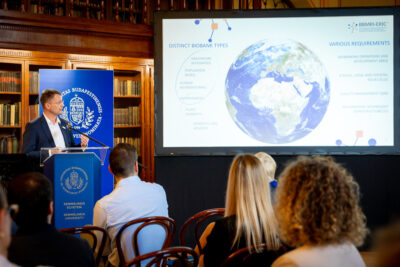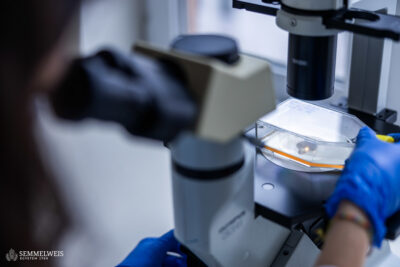EUniWell (European University for Well-being) aims to create opportunities for open and dynamic knowledge exchange, so the European Univerisies Alliance has launched an Open Lecture Series on the topic of “Research on Well-being”.
The webinar series leverages EUniWell’s diverse community and provides regular opportunities for knowledge exchange across multiple disciplines allowing EUniWell academics, researchers, educators and students to initiate discussions and build professional networks. In addition to creating a multicultural and multidisciplinary meeting place for the EUniWell community, the Open Lecture Series aims to provide insights into the latest scientific developments in an accessible way.
As part of the EUniWell Open Lecture Series, dr. Ádám Tabák will be speaking about “The use of metabolic trajectories to better describe the natural history of metabolic diseases” on 7 April.
Dr Tabák holds a medical degree and a PhD in diabetes epidemiology from Semmelweis University. He split his time as a research professor between Semmelweis University (Department of Internal Medicine and Oncology and Department of Public Health) and University College London. His research interests include clinical aspects of diabetes mellitus including the risk factors and consequences of diabetes complications and gestational diabetes as well as the efficacy of novel diabetes medications. His research in the UCL-driven Whitehall study focuses on the natural history of diabetes before and after the diagnosis of diabetes using the repeated measures available in this database. He is also interested in the natural history of diabetic vascular complications.
 About the lecture:
About the lecture:
Highly characterised cohorts (such as the occupational Whitehall II or the currently organised Semmelweis cohorts) are the cornerstones for understanding the effects of cumulative exposures and exposure trajectories in chronic diseases. In this presentation, Dr. Ádám Tabák provides examples on the use of repeated measures from the Whitehall II observational cohort study of British civil servants to estimate trajectories of glycemic markers over ageing and preceding diabetes development. Based on the results, it seems that low insulin sensitivity is a prerequisite for the onset of diabetes, but plays a relatively small role in the immediate changes in blood glucose at the time of diabetes diagnosis. The risk associated with insulin secretion depends on the timing of measurement relative to the time of diagnosis: higher values increase the risk of diabetes if measured years/decades before diagnosis, lower values predict the short-term diabetes risk. South Asians have an increased risk of diabetes that is associated with increased insulin resistance. Our results showed that fasting glucose rises earlier and increases faster among south Asians. In contrast to whites, who could increase insulin secretion up to 7 years before diagnosis, this compensatory mechanism is hardly seen in south Asians. Overall, one can argue that epidemiological studies with multiple waves of data collection (such as the Whitehall II study) are essential for the better understanding of diabetes development.
The lecture will be moderated by dr. György Purebl, the EUniWell Open Lecture Series’ previous speaker from Semmelweis University.
Join the webinar via the following link on 7 April at 13:00 CEST: https://semmelweis.zoom.us/j/91782481940
Participation is free, registration is not required.
Eszter Turopoli (Directorate of International Relations)


